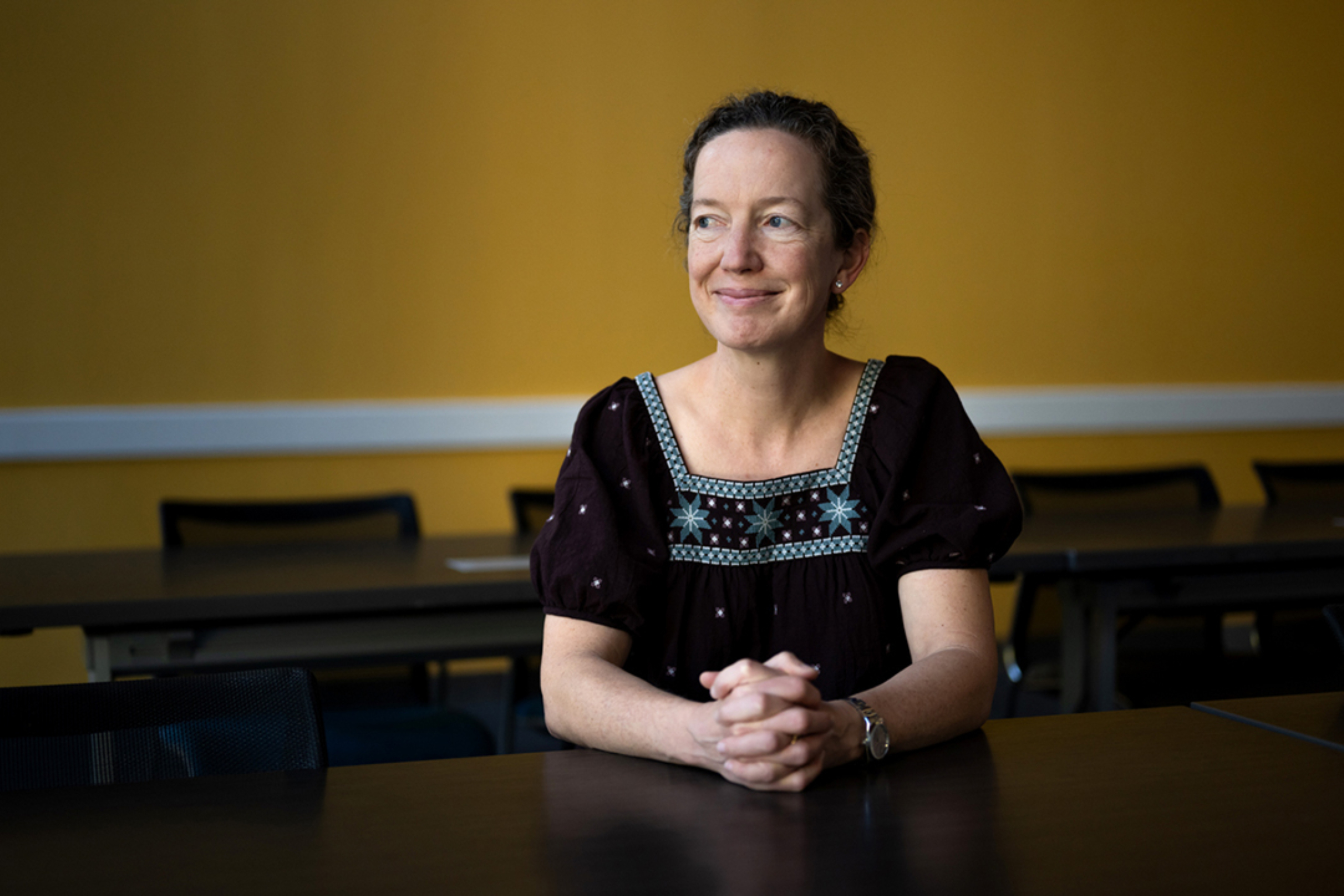It’s no secret that the path to becoming a physician is difficult. The requirements are rigorous: years of schooling, countless hours of study, long shifts of work — these things are known.

But what often goes overlooked is the true toll physicians experience during training. While navigating major life changes like moving across the country and establishing community within a new home and work environment, residents and fellow physicians are learning to maneuver health systems and also often bear the weight of their patients’ worst days.
Brooke Wagen, a hospice and palliative medicine fellow, describes this transition as a “loss of self,” an issue she aims to bring attention to and alleviate through her Distinction in Care Transformation project, the Lazarus Phenomenon, which provides her peer residents and fellows space to gather and share their stories.
What makes you uniquely positioned to do what you do?
As a member of Dell Med’s inaugural class of students, I had a goal to provide excellent medical care to Austin’s oldest and most medically underserved residents. Prior to medical school, I was a mom, neighbor, church member, Meals on Wheels driver and volunteer medical interpreter. Connections to my neighborhood and community were, and are, vital.
The journey through medical school, residency and fellowship is long and tumultuous. I am grateful to have stayed in my home and hometown for all my training, but I have seen firsthand the need for more rootedness and connection for trainees due to multiple moves between schools and cities.
What is the inspiration behind your Distinctions in Care Transformation project? What is your intended impact?
The Lazarus Phenomenon is a storytelling evening specifically for residents and fellow physicians. Trainees often lack space and time to process, connect and reflect on what they’ve seen and felt. The goal is to allow them to share parts of their life and experiences in medical training with their peers across all departments.
I hope we can build connection and community through our shared vulnerability. Storytelling can be intimidating, perhaps, but my hope is that imperfection and authenticity lead. As people tell stories or give storytellers a place to be heard, they build connections one evening at a time.
Describe a memory that has shaped how you approach your life and work.
I was talking with my neighbor across the street many years ago, and he told me his hearing kept getting worse, but his doctors weren’t doing anything about it. After some consideration, we decided I would go with him to his next appointment as an advocate and interpreter. I discovered that he never had the opportunity to voice his fears or needs at a typical visit due to a lack of a patient-doctor relationship and language barriers. He told the doctor that his hearing had been getting worse, but nothing was getting done about it. We learned that his audiology referral just to get his hearing tested had been sitting on an empty desk, and there was no longer an audiologist for his clinic.
Getting health care often requires a champion, which is why, as I take care of people now, I think of my neighbor. I try to see and attend to each person’s concerns with the same level of personal attention he needed before hearing aids and a cochlear implant.
If readers remember one thing about you or your work, what do you hope that is?
Be kind, for everyone you meet is fighting a hard battle.
Ian Maclaren
This quote has resonated with me since first hearing it. The idea that everyone we meet — in life, on the street, at work, in the hospital — is fighting their own battle is central to my ethic in medicine. My faith compels me to be still, to listen and to see the intrinsic value in each human soul I meet. My vocation calls me to sit with them in their suffering and ask what I can do to serve or help — or at least to be present — as each is within my power.
I want my co-workers to see me this way, as a friend and colleague who noticed that they too were in the midst of a battle, and was kind.
Graduate medical education, or GME, refers to the period of education in a particular specialty or subspecialty following completion of medical school. This continuation of training through residency and fellowship programs provides the clinical and educational experience needed for physicians to achieve autonomy, deliver high-quality patient care, and prepare for challenges in an evolving health care landscape.
Dell Med serves as the academic home and Ascension Seton as the clinical home for 494 resident and fellow physicians within more than 45 residency and fellowship programs ranging from family medicine and neurology to pediatric emergency medicine and cardiovascular disease.